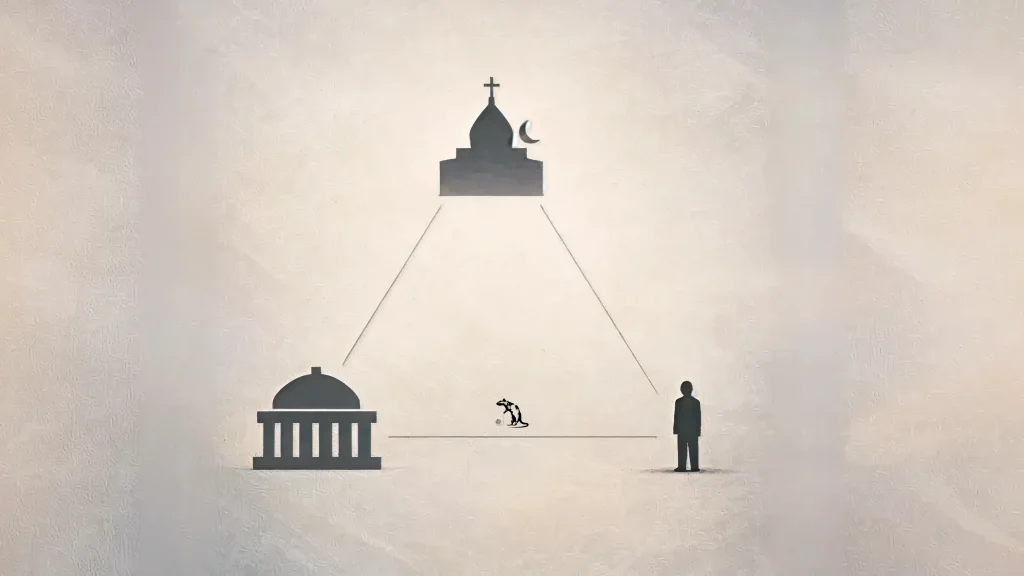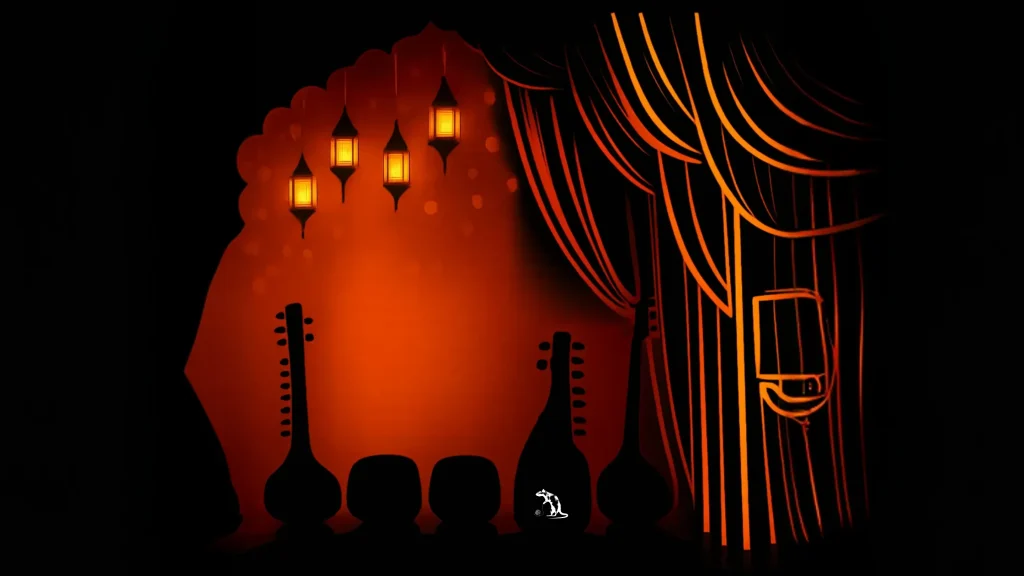Mere Watan, Mere Bas Mein… Kuch Bhi Nahin
They play the milli naghma on TV again, children in crisp uniforms, flags in the wind, drone shots of mountains and mosques. The singer’s voice swells: “Mere watan mere bas mein ho…” and for a second, you almost believe it. Then the light goes out, the fan stops, and suddenly you remember the truth:
!میرے وطن میرے بس میں ….. کچھ بھی نہیں
They say Pakistan is a young nation. But seventy-seven years old is not young; it’s middle-aged, with bad knees and worse habits. Our leaders keep calling it “the land of the pure,” but purity here is like a white kurta after a rain–stained, soaked, and smelling of gutters. We are told our problems are temporary. But in Pakistan, nothing lasts longer than a “temporary problem.”
Here, religion is not a personal matter; it is a government department, a TV talk show topic, and a street weapon. One verse of the Qur’an is used for spirituality, another for campaign posters, and a third for justifying your neighbor’s murder. The mullahs and politicians exchange fatwas like business cards. Even God must be tired of hearing His name misused here.
Our blasphemy law is a magic wand; wave it at someone, and they disappear from society, if not from the earth itself. You don’t need proof, but you just need lungs strong enough to shout “gustakh!” loud enough for a mob to hear. This country treats rumor like evidence and blood like water. We have replaced courts with crowds, and mercy with machetes.
The mosques are full, but the hearts are empty. Qari sahab can recite the Qur’an in twenty different styles, but can’t keep his hands off little boys. We pretend not to know. We whisper, “Don’t ruin his reputation.” His reputation? The child’s life is already ruined. But in Pakistan, shame is heavier than justice, and it always falls on the victim, never the criminal.
Minorities live here like unwanted guests. Hindu girls are “converted” with a gun in one hand and a marriage certificate in the other. Christians clean our streets but are not welcome in our homes. Shias and “some others” live under the constant shadow of someone deciding they are not Muslim enough to live. We call ourselves the fortress of Islam. What kind of fortress kills its guards?
The middle class is the engine of this country, but it runs on stress, loans, and family pressure. A father works twelve hours a day so his son can become a doctor; the son becomes a doctor so he can leave the country. A daughter is told she can be anything she wants, as long as it is within a ten-minute drive from home and approved by the in-laws she doesn’t have yet.
We are a democracy in theory and a dictatorship in practice. Every few years, the “Pindi Boiz” step in “to save the country”, like a landlord entering your house to fix the electricity, but also taking the fridge, the sofa, and your daughter’s dowry. From cement factories to breakfast cereal, the “hardcore men” sell us patriotism at a retail price, and we keep buying.
The media shouts all day but says nothing. One channel supports the government, another supports the opposition, but none supports the truth. Journalists vanish, newspapers shrink, and TV hosts turn into clowns juggling patriotism, religion, and advertisements for washing powder. We call it “freedom of expression” – a freedom where you can say anything as long as it’s approved.
Our police are brave when catching protestors, weak when catching rapists, and invisible when catching thieves. If you have money, your FIR is filed in minutes. If you don’t, the station is “too busy.” In some areas, the cops are the gangsters. In others, they work for them. And in most places, they just work for themselves.
We raise our children with two dreams: to go abroad or get a government job. Both dreams are ways of escaping responsibility. If you go abroad, you send money and live guilt-free. If you get a government job, you can take bribes and retire early. Nobody dreams of fixing Pakistan. Here, we only dream of surviving it.
Every year, we celebrate Defence Day, Independence Day, and Kashmir Day. But we have no Clean Water Day, No-Load-Shedding Day, or Justice-for-Rape-Victims Day. We will die for Pakistan, but we won’t stand in line to pay taxes. We will chant slogans for Kashmir, but won’t give our maids a Sunday off.
In Pakistan, history is not written but edited. Textbooks are fairy tales where generals are heroes, politicians are villains, and the people don’t exist. Our children grow up believing we have won every war, even the ones we lost. We erase facts like they are typos, and we produce generations who cannot tell a lie from a lesson.
The poor suffer in silence because even suffering is a privilege here. To make your pain public, you need access to the internet, television, and a lawyer. If you are a bonded laborer, a brick kiln worker, or a child bride, you don’t exist on paper or social media – and in Pakistan, if you don’t exist on either, you don’t exist at all.
We are addicted to hope like it’s an opium. Every election, we think a new leader will fix everything. Every time we hear a speech, we think this time they mean it. Every five years, we reset our disappointment clock and go back to sleep. Hope in Pakistan is not a light in the dark but a mirage in the desert.
And yet, here we are, again singing milli naghmas, waving green flags, and calling this broken home “motherland.” We can’t fix the roof, but we will defend it with our lives. We can’t clean the water, but we will drink it with pride. Maybe that’s the tragedy, maybe that’s the beauty, or perhaps it’s just the punchline of our national joke.



